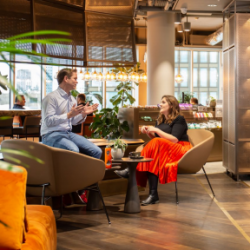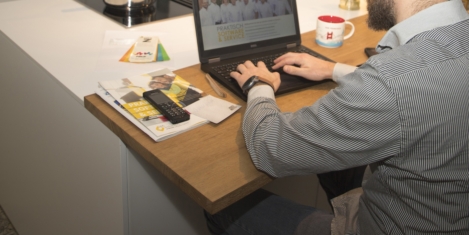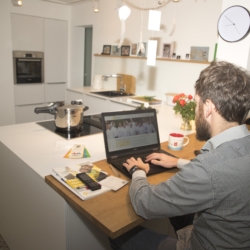February 23, 2021
CBRE acquires 35 percent stake in flexible office provider Industrious
 CBRE Group has announced the acquisition of a 35 percent interest in Industrious, a provider of flexible office space, which will also see CBRE’s existing flexible workplace firm Hana absorbed into Industrious. CBRE is now Industrious’ largest shareholder. In addition, CBRE is expected to acquire an additional 5 percent of Industrious in the coming weeks, which would result in a 40 percent total stake. The investment significantly increases CBRE’s participation in the flexible workplace sector and positions the company to meet rising demand from occupiers for agile space solutions — a trend that is being accelerated by the Covid-19 pandemic. (more…)
CBRE Group has announced the acquisition of a 35 percent interest in Industrious, a provider of flexible office space, which will also see CBRE’s existing flexible workplace firm Hana absorbed into Industrious. CBRE is now Industrious’ largest shareholder. In addition, CBRE is expected to acquire an additional 5 percent of Industrious in the coming weeks, which would result in a 40 percent total stake. The investment significantly increases CBRE’s participation in the flexible workplace sector and positions the company to meet rising demand from occupiers for agile space solutions — a trend that is being accelerated by the Covid-19 pandemic. (more…)







 The COVID-19 pandemic is driving a fundamental shift in the way companies operate, accelerating the need for an adaptable and agile workforce to drive business success. According to
The COVID-19 pandemic is driving a fundamental shift in the way companies operate, accelerating the need for an adaptable and agile workforce to drive business success. According to 
 Workers in Britain are facing inequality due to a stark difference in employers’ approaches to flexible working, with nearly half (46 percent) of employees saying they do not have flexible working arrangements – such as flexi-time, part-time working, compressed hours or job shares – in their current role. This is according to new research from the
Workers in Britain are facing inequality due to a stark difference in employers’ approaches to flexible working, with nearly half (46 percent) of employees saying they do not have flexible working arrangements – such as flexi-time, part-time working, compressed hours or job shares – in their current role. This is according to new research from the 
 According to
According to 
 A new study by
A new study by 
 A third of flexible workspace providers reported that occupancy rates have remained relatively stable through the global lockdown, only falling by 10 percent. On average, operators reported demand for flex space at 52 percent of pre-Covid levels, but some suburban markets have seen significant growth and pricing in those areas has increased.
A third of flexible workspace providers reported that occupancy rates have remained relatively stable through the global lockdown, only falling by 10 percent. On average, operators reported demand for flex space at 52 percent of pre-Covid levels, but some suburban markets have seen significant growth and pricing in those areas has increased. 
 Workers are feeling compelled to demonstrate presenteeism and availability to employers in the wake of the COVID-19 outbreak, claims a new global study from the
Workers are feeling compelled to demonstrate presenteeism and availability to employers in the wake of the COVID-19 outbreak, claims a new global study from the 




 To mark the start of National Work Life Week, work-life balance charity
To mark the start of National Work Life Week, work-life balance charity 










March 5, 2021
From the archive: Flexible working may improve productivity, but does it diminish creativity?
by Maciej Markowski • Comment, Flexible working, Workplace